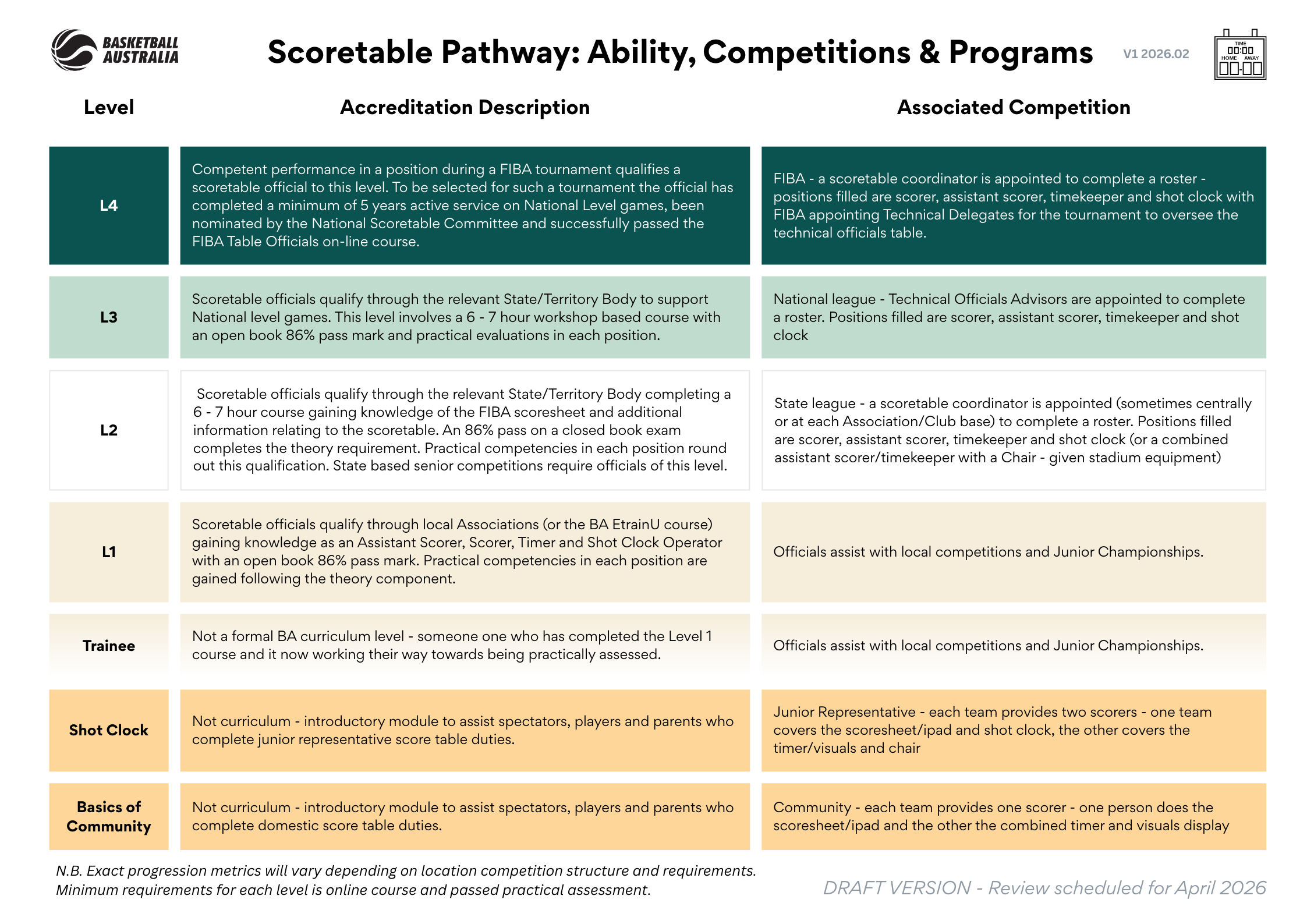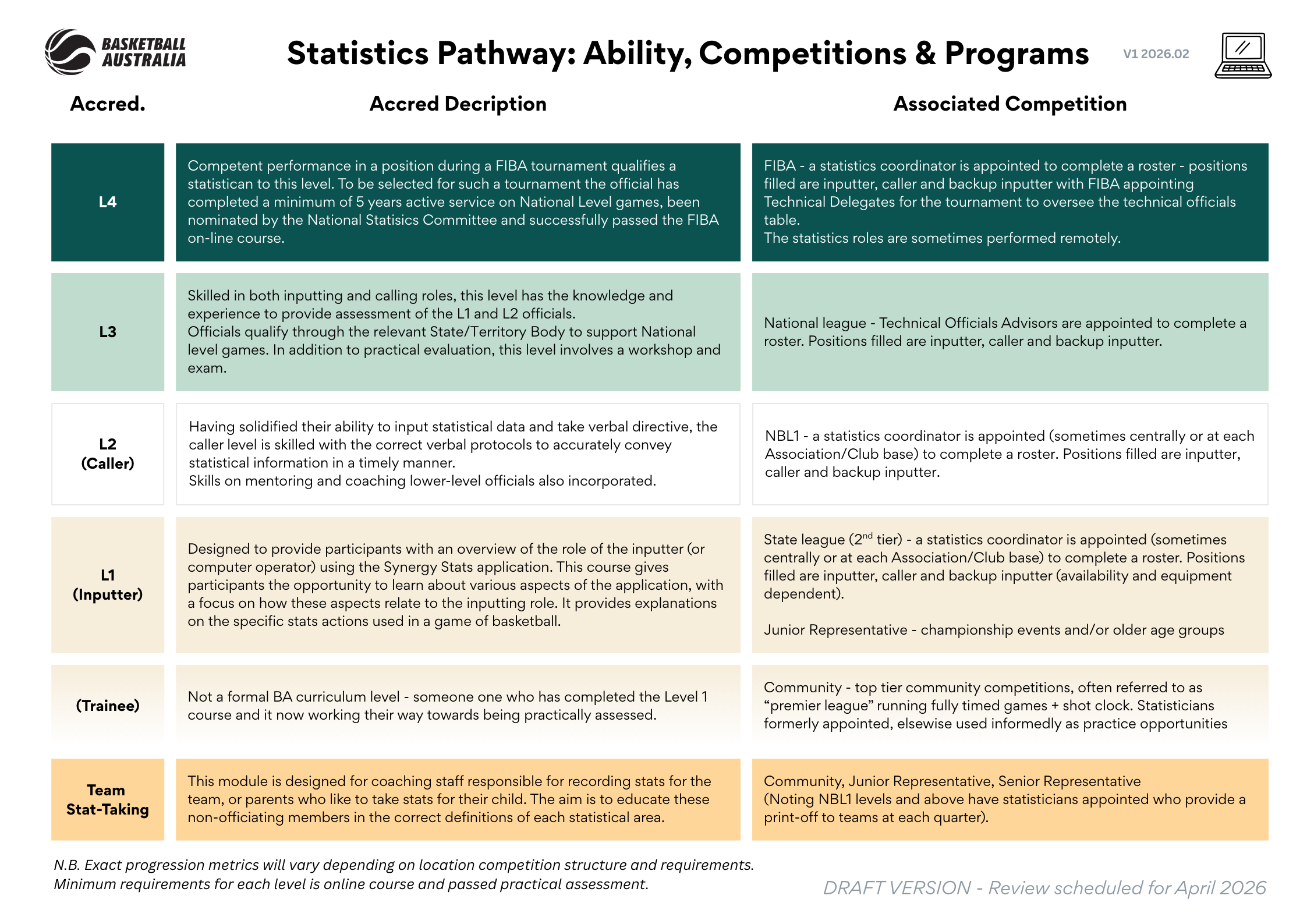Behind every fair and thrilling game, there is a team of dedicated technical officials ensuring the integrity of the sport.
Here, we offer a wealth of resources, rulebooks, and video tutorials to sharpen your officiating skills and keep you up-to-date with the latest changes in the game.
As a technical official, your commitment to upholding the spirit of basketball is paramount, and we are here to support you every step of the way. Find out about the pathways below.
Start your officiating journey today — learn more here.



